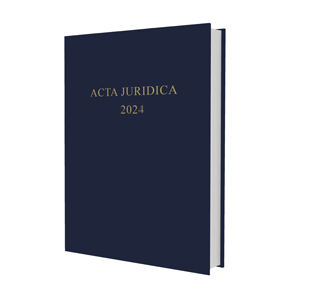The evolution of the right to fair procedure in dismissals for misconduct

The evolution of the right to fair procedure in dismissals for misconduct
Author André van Niekerk
ISSN: 1996-2088
Affiliations: BA LLB MA (Witwatersrand) LLM (Leicester); Judge of the Labour Appeal Court of South Africa
Source: Acta Juridica, 2024, p. 55-86
https://doi.org/10.47348/ACTA/2024/a3
Abstract
The obligation to follow a fair procedure before dismissing an employee for misconduct, certainly in the private sector, has its origins in the concept of the unfair labour practice, introduced in 1979 by way of an amendment to the Labour Relations Act 28 of 1956. This article traces the history of the development of a right to fair procedure before a decision to dismiss, and attempts to identify the normative basis of and justifications for that right. These included international standards, comparative law, the principles of administrative law applicable to public sector employees, and employer best practice. By 1994, a ‘criminal justice’ model had evolved, in which pre-dismissal procedures were equated with procedures applied in a criminal court. The Labour Relations Act 66 of 1995 (in particular, the Code of Good Practice: Dismissal) attempted to reduce the cost of elaborate workplace procedures. The legislative package introduced a system of compulsory arbitration for disputed dismissals, with a primary remedy of reinstatement for dismissals found to be substantively unfair, and compensatory awards for dismissals found to be substantively fair, but procedurally unfair. This approach reflects both respect for the autonomy and dignity of the employee, and a justification based on maximising the general welfare. The general welfare is maximised by accommodating the diversity and flexibility of procedural standards, promoting rational decision-making in disciplinary matters, and eliminating the cost of duplicated processes. The Code thus ultimately seeks to combine the normative ideals of worker protection with the achievement of productive efficiency.